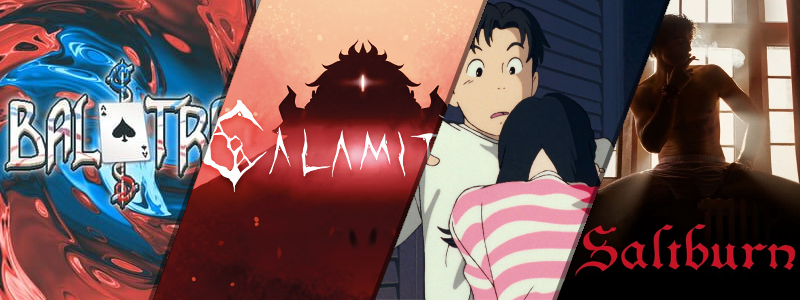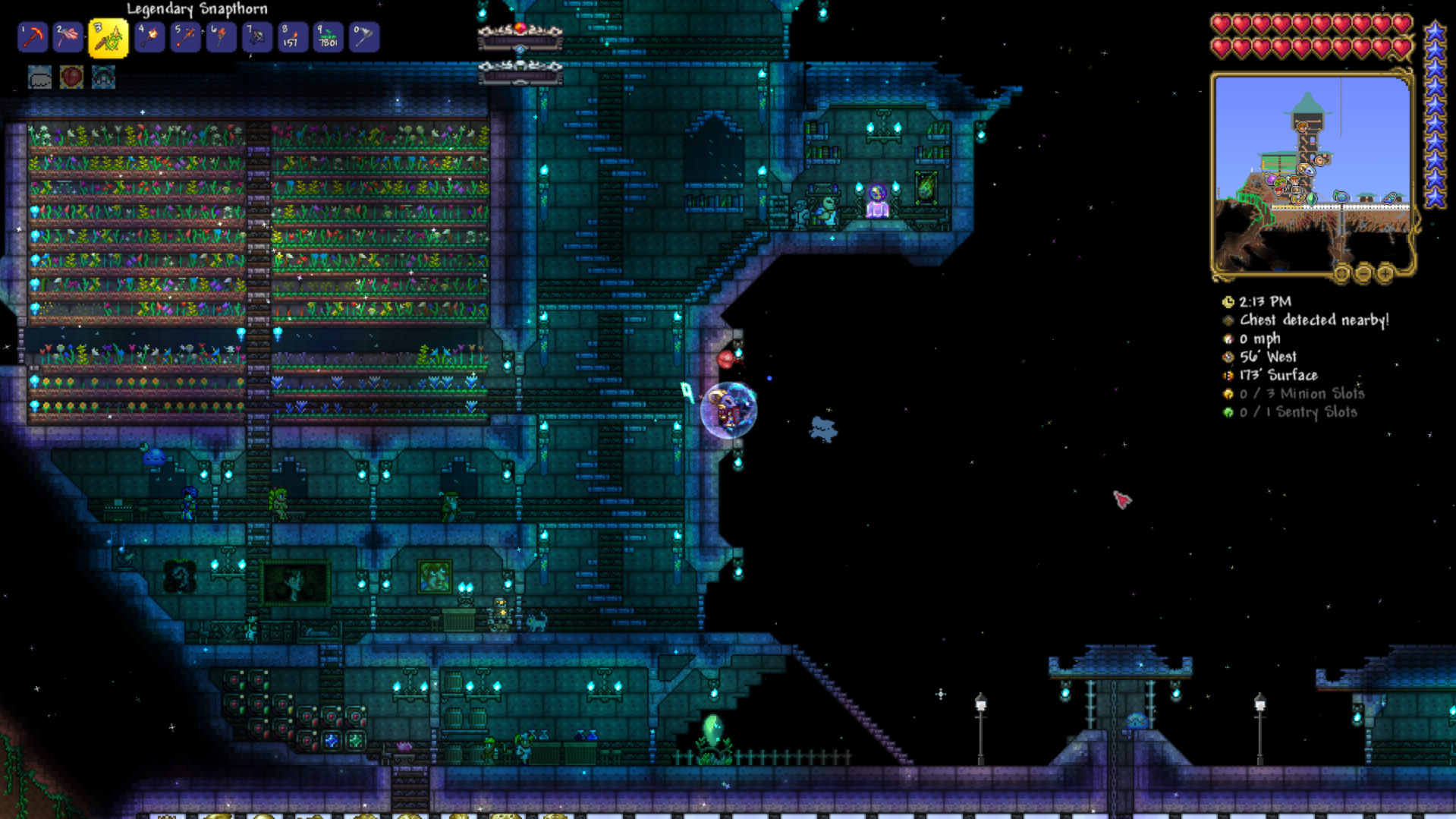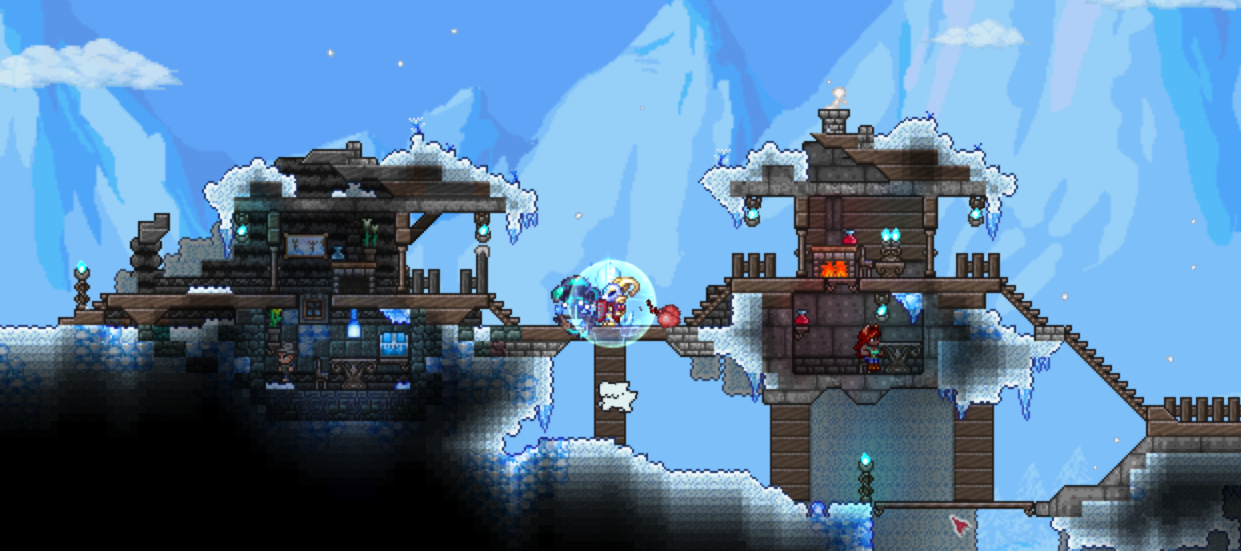
 March 1, 2024 ; Catergory: what-ive-been-into
March 1, 2024 ; Catergory: what-ive-been-into
Back at it again, since I quite liked doing this last month! Not too much to talk about really, since this month sat right in the middle of my university term, but nonetheless tried some interesting titles. I also started a handful of titles which I haven’t finished yet, so stay tuned for them in a future instalment!
I need to talk about this game because it's consumed too much of my life since getting it on release. It's kind of depressing to admit but I've sunk an average of 4 hours everyday into it since buying it - it's just that addictive. If you're not already aware of what I'm talking about, Balatro is a poker rougelite focused on making high scoring hands through devastating combos. The fun of the game, like most rougelites, is a) adapting your strategy on the fly to accommodate what the game gives you and b) unlocking more tools to make future runs more interesting. Honestly Balatro doesn't do much different than other titles - it just nails the genre's fundamentals perfectly. It's incredibly replayable too - with 8 tiers of difficulty on 15 decks, several achievements, mini achievements in the form of card unlocks and 20 unique and tough challenges. All of these factors have been some of the primary drivers of why I come back to this game.
I also could not talk about this game without also talking about its presentation. Audio-visually it is a delight, with great artwork, animation and satisfying sound effects to boot. There is only 1 backing track, which is certainly a let-down, though it's at least good enough to not be grating. Otherwise the game's look, in my view, contributes significantly to its appeal. Imagining a version of the game with the same systems but basic presentation, I imagine that I would have gotten bored really quick, as the game-feel would be severely lacking. Not to say the looks overcompensate the gameplay but that we have a case of great form alongside great function.
Also FYI, it is super easy to 'decompile' the game. The actual .exe is just a disgused zip file, which any archive manager (7Zip, WinRAR etc) can open up for you. It's been pretty eye opening seeing exactly how this game I love has come to fruition and I'm sure I'll be putting out mods for the game soon enough (I have a few ideas here and there for QOL enhancements).
Terraria is one of my favourite games of all time. Based off just my steam stats (a platform I initially got just to play Terraria) I've played at least 1,200 hours over the past 9.5 years! Terraria has near enough been a constant in half my life, which is pretty insane to say. You'd think, therefore, that I really don't have much else I could do in the game - that I've extracted most of what it can offer. But I've recently been inspired!
YouTuber Throarbin last year made a series called 'One Year One World' wherein he set out to spend exactly 1 year on a single world. This, in his view, would allow him to properly appreciate each of the stages in Terraria wherein otherwise he would just speed run to the end and never touch that specific world again. I really loved following his series and once it had finished last December, I felt inspired to do the same. But... not with vanilla Terraria. Instead, I decided to attempt this challenge with the Calamity mod instead.
Calamity, if you aren't aware, is perhaps the largest scale and most popular mod for Terraria. A complete overhaul, it adds a whole suite of new bosses, items, mechanics and even a new class in the form of the rogue. It's incredibly expansive and adds a fresh coat of paint to a game that for many, myself included, can feel a bit derivative after many playthroughs. I've actually played Calamity before with a friend years ago. Problem is, I literally cannot remember anything about my playthrough - like at all. Casually scrolling through the Calamity wiki I chanced upon bosses, locations and items that I would have no doubt encountered in my playthrough all those years ago that seems completely novel to me. A sign perhaps that I had rushed too quickly through all of it!
It should be clear then why I want to do a 'One Year One World' challenge. I want to get to know Calamity inside out, and not just have it be another fleeting experience. And to help in that endeavour, I'll be writing a short bit every month to accompany my playthrough - so expect to see this section pop up for the next several of these posts.
So, having started this month, I ended up squishing January and February's progression into the first month. I should also mention, I'm planning to spend about 15-20 hours per month to make sure I actually spend time in each block of progression - otherwise I could just play very little to avoid any 'dead time' and completely miss the point of the experiment. Saying that - I did actually fail to do this. See the section on Balatro above as it is the culprit behind this mishap. Nonetheless, I still have a total of 25 hours on the save. And outside of killing the bosses I'm allowed to kill, most of my leftover time has been spent either exploring (I have the whole sky and underworld mapped out) or building - which is what I expected. Not really much else to say really - I imagine the next month will be much the same, especially since many important biomes still do not have adequate housing (right now my only outposts are my home base and the ice biome). I also see myself trying to handle 3 classes at once, using the loadout system. Right now, I've been using my favourite class - the summoner - which Calamity generously supports. However, again inspired by Throarbin who did this exact thing, I think I want to try several classes at once, switching between them using hotkeys. Specifically I want to use Melee and Ranger, as then I have classes to deal with short-range, mid-range, and long-range respectively. Time will tell if I can truly be asked to implement this.
Anyway to close off, here are the builds I made this month:


[Start of Major Spoilers]
Is Ocean Waves a romance? This seems to be the primary question people ask about the film online, at least in discussion on MyAnimeList. It was also the question I was left to ponder as the film ended. If it is meant to be a romance then, according to detractors online, it fails to live up to the promises pledged by the genre. Essentially, the romance, to them, doesn't seem earned. Our main two characters, Kochi and Rikako just don't seem to like one another. They fight with one another, they don't seem to interact with one another very much, and most importantly - there doesn't seem an indication that they start to grow away from the hostility into a genuine interest in one another. And yet, the film ends with the implication that a year after high school they end up together. It simply feels unearned, detractors will argue. And I'll admit too it felt at least a little odd. But, I don't know, I don't think I can simply accept the detractors point of view - as someone who otherwise felt that they really enjoyed this film. So, what else could the film be about?
So it first should be noted that there are many other takes I've seen online regarding how to read the film. A personal favourite of mine, though not my own interpretation, is the one that views the film as explicitly queer. I've yet to mention the third primary protagonist, Yutaka, and honestly any interpretation of the film that leaves him out of the picture necessarily must be an incomplete one due to his significance to the narrative. The queer reading sees Kochi as being infatuated with Yutaka during his high school days, blind sighting his attraction to Rikako. It's only on reflection that he is able to see his attraction to her, and because he knows Yutaka wouldn't be interested in him goes after Rikako instead. Another view, the one I initially held, was that this story isn't actually a romance, but a coming of age story. Its simply a character study of our three main protagonists and their growth as people as they mature. However, this view opts to ignore the obvious romantic text at the end of the film - suggesting that it can't be the only thing the film is about. So I ask again, what is the film about?
I'm liable to change my view radically given more time and thought so don't take this as my eternally held view - but I think that the film is in fact a romance film. But not in the traditional or stereotypical sense. Note the framing of the story - we are invited to join in reminiscing about Kochi's reminiscence - specifically framed around his relationship with RIkako. The goal here is clear then right? He looks back at his history with Rikako, the girl that he otherwise would say he had a weird, rough and overall tumultuous relationship with, and re-examines what that relationship really meant to him - sans the baggage of adolescence. I wont go through every scene, but an example to bring up is the part where Kochi agrees to go to Tokyo with Rikako. On the face of it this interaction is already somewhat hostile. Kochi is mad that Rikako used his money to buy a plane ticket, and Rikako is annoyed that he'd come to berate her at such an emotional time for her. In the literal text its hard to see what chemistry could be taking place between them. But think of it more deeply, the fact he's willing to go across the country with a girl he barely knows, and that she's happy to do so as well despite ultimately not needing to, suggests that below the surface they do actually like each other more than they care to admit. And this trend can be seen over and over again in their interactions.
Where does Yutaka fit into this? I said earlier after all that any analysis that leaves him out must necessarily be incomplete. Well it should be noted that Yutaka isn't a neutral party in Kochi and Rikako's relationship. Yutaka explicitly tells Kochi that he likes her, and its also set up that Kochi deeply respects Yutaka as a friend and as a person. Yutaka's presence, in my view, helps to explain Kochi's actions in the past as a lot of what he does is clearly out of respect for his best friend's intentions - not realising that his doing so is destructive to both his relationship with Yutaka and Rikako.
I invite you, dear reader, to look back on your own adolescence. What was it more like? A romance anime, or Ocean Waves. Look back at the people you've drifted from, those you had a close relationship with? Is it not common to realise on reflection the ways you really felt about a person that you couldn't admit in the moment? I know I can think of examples. Adolescence is messy, you don't understand yourself well, you're learning to navigate the world, relationships and your own feelings. It's natural to end up like Kochi, or Rikako - people struggling with their relationships or situations - than to have your life unfold so neatly.
[End of Major Spoilers]
[Start of Major Spoilers]
The experience of watching Saltburn was a continuous stream of hitting me with things I did not expect. Even before starting the film, there was a certain mythos around the film on TikTok and on other sites that primed me to believe the film would be horribly fucked up or painful to watch. That didn't really end up the case. When we meet Felix, we expect him to be an asshole because he seems like an entitled rich guy - but he isn't really. We expect his family to hide some dark secret or be fucked up in some way, and they are certainly odd but ultimately human. I expected the film to go surreal due to a) the sister mentioning that the family was cold-blooded and b) a scene where we seem to see double of Felix (both outside a window and at the dinner table) but it never goes in that direction. We expect our narrator to be the good guy and end up wrong.
What does Saltburn achieve with its subversion? Well I mean for one, it comments on similar stories' characterisation of the rich for one, understanding them as simple malevolent forces rather than people who are simply disconnected from others in society. Similarly it comments on media's portrayal of people who go to universities like Oxford - both of these make more sense when you understand the background of the director. But simply calling Saltburn a simple subversion I think also gives it too little credit. If we were to understand Oliver as a straightforward villain, what is the messaging we ought to take from the film? Instead of being sceptical of the rich we should be sceptical of what, loners? No this obviously seems to not be the message of the film. Which segways us into the central component that makes Saltburn more interesting - that Oliver loves Felix.
The love aspect is transformative as it also humanises Oliver away from mere sociopathy. Of course his sociopathic tendencies are still central to his character but his motivations become understandable, almost sympathetic. Don't get me wrong, Oliver is still a horrible person and worthy of our condemnation but he becomes more of a tragic character as his story is unveiled, as a deeply lonely person who desperately wants connection to the man who shows him compassion - Felix.
Now unfortunately this reading is undercut by the ending - which I feel like swings Oliver's characterisation back into the sociopathic angle and therefore away from what makes him, and the film at large, more interesting. We're shown that he has been scheming from the very start to intentionally engineer the situations we see in the film. Even from their first meeting - which we learn was planned and not an accident. And we then go on to see him mauver his way into taking over the Saltburn mansion, with the film ending with him having secured it and dancing naked within it. This section just feels odd next to the rest of the film. While Oliver does want to cement himself within Felix's family, it doesn't seem to me as if he was especially interesting is taking everything the family had - and certainly doesn't seem to fit within Oliver's infatuation with Felix. Overall I feel as though this element detracts from an otherwise great film.
[End of Major Spoilers]
So basically as a tl;dr, Saltburn taught be that if I ever went to Oxford, I should be scared of English students rather than rich people.